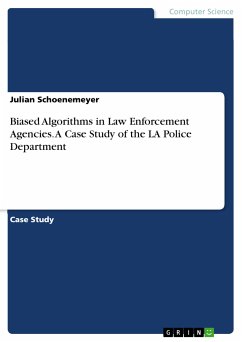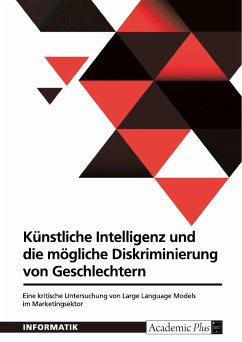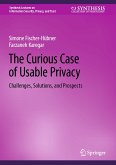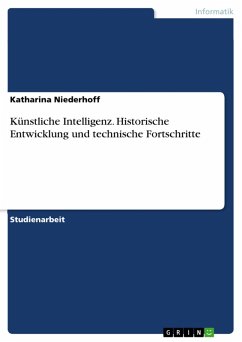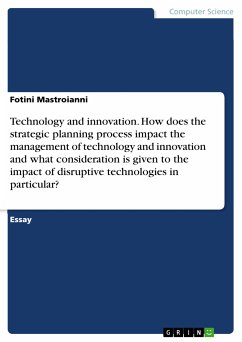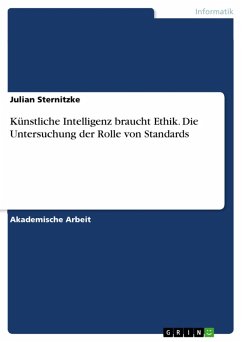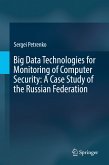Case Study from the year 2023 in the subject Computer Science - Internet, New Technologies, grade: 1,0, Charles University in Prague (Faculty of Social Sciences), course: Security and Technology, language: English, abstract: This paper tries to answer the question, how the LA Police Department uses AI (Artificial Intelligence) algorithms to profile criminality. Can these algorithms always be fair and impartial? In today's society, we are constantly surrounded by artificial intelligence, especially by algorithms that try to profile us to predict our future behaviour. These algorithms are deeply embedded in our daily lives, whether we are watching Netflix, using Amazon music or do online shopping, they try to present us with suggestions to get us more involved with the platform to spend more time there and therefore more money. But these algorithms are not only operated by business companies alone, they are also implemented with public policy providers and law enforcement agencies, like police forces. First, the author gives a detailed explanation of how these algorithms work, then he lists examples in which areas police forces might use these algorithms, such as facial recognition software and making suggestions about the sentencing of criminals. However, the paper also discusses critique of the use of technology by law enforcement. Many ascribe these algorithms a certain bias, especially racially, having mainly been trained on a dataset, which in itself is biased. The next chapter contains the author's methodology, which he then applies to his case study about the LA Police Department in the last part of his paper.
Dieser Download kann aus rechtlichen Gründen nur mit Rechnungsadresse in A, B, BG, CY, CZ, D, DK, EW, E, FIN, F, GR, HR, H, IRL, I, LT, L, LR, M, NL, PL, P, R, S, SLO, SK ausgeliefert werden.

